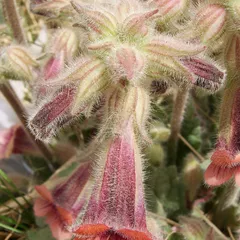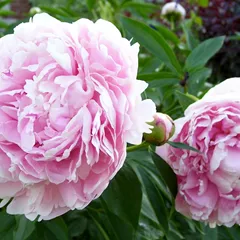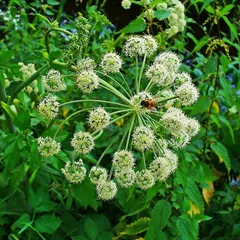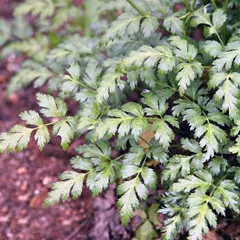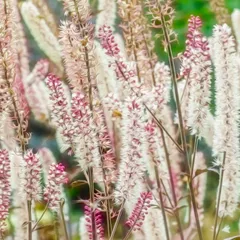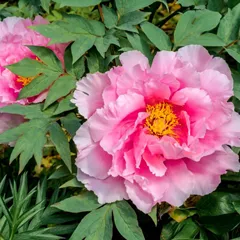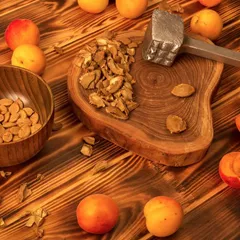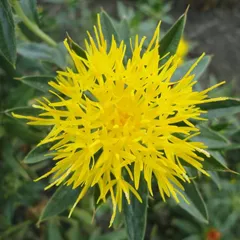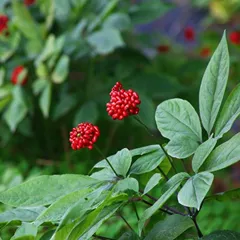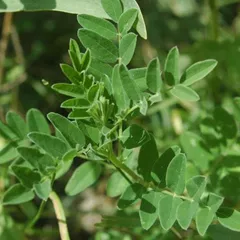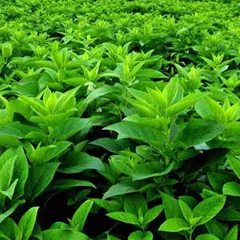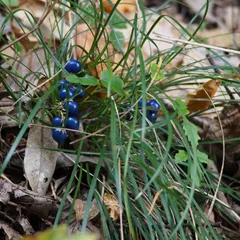Di Gu Pi Yin
Di Gu Pi Yin
Chinese: 地骨皮饮
Pinyin: De Gǔ Pí Yǐn
Other names: Cortex Lycii Decoction, Goji tree root bark Decoction,
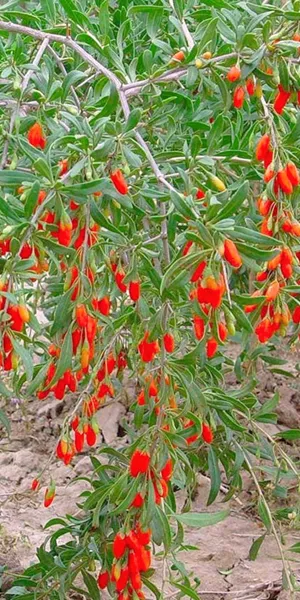
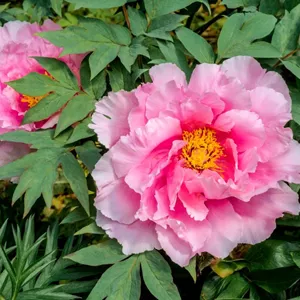
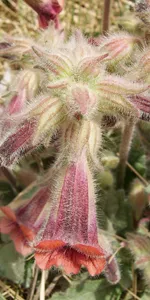
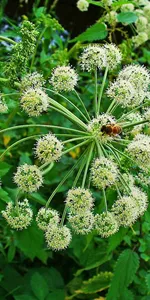
Di Gu Pi Yin
Di Gu Pi Yin
Chinese: 地骨皮饮
Pinyin: De Gǔ Pí Yǐn
Other names: Cortex Lycii Decoction, Goji tree root bark Decoction,
Number of ingredients: 6 herbs
Formula category: Formulas that nourish Yin and tonify
Conditions for which it may be prescribed: Early menstruationAbnormal uterine bleeding
- Clears Heat
- Stops bleeding
Source date: 1742 AD
Source book: Golden Mirror of Medicine
The information provided here is not a replacement for a doctor. You shouldn't use it for the purpose of self-diagnosing or self-medicating but rather so you can have a more informed discussion with a professional TCM practitioner.
Di Gu Pi Yin is a 6-ingredient Chinese Medicine formula with Goji Tree Root Bark (Di Gu Pi) as a principal ingredient.
Invented in 1742 AD, it belongs to the category of formulas that nourish Yin and tonify. Its main actions are: 1) clears Heat and 2) stops bleeding.
In Chinese Medicine health conditions are thought to arise due to "disharmonies" in the body as a system. These disharmonies are called "patterns" and the very purpose of herbal formulas is to fight them in order to restore the body's harmony.
In this case Di Gu Pi Yin is used by TCM practitioners to fight patterns like Heat in the Blood. From a Western Medicine standpoint, such patterns can give rise to a range of conditions such as early menstruation or abnormal uterine bleeding for instance.
On this page, after a detailed description of each of the six ingredients in Di Gu Pi Yin, we review the patterns and conditions that Di Gu Pi Yin helps treat.
The six ingredients in Di Gu Pi Yin
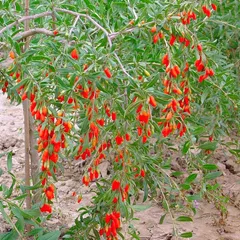
Di Gu Pi is a king ingredient in Di Gu Pi Yin. Like the name indicates, it means it has more power than other ingredients in the formula.
1. Goji Tree Root Bark (Di Gu Pi)
Part used: Dried root bark
Nature: Cold
Taste(s): Sweet
Meridian affinity: KidneyLiverLung
Category: Herbs that cool the Blood
In general Di Gu Pi's main actions are as follows: "Clears Yin Deficient Heat;. Clears Lung Heat and stops cough. Cools the Blood when there is reckless movement of Blood. Drains Fire when Kidney Water is unable to control Fire."
In the context of Di Gu Pi Yin, it is used because it clears Empty Heat and cools Blood.
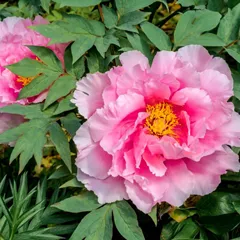
2. Mudan Peony Bark (Mu Dan Pi)
Part used: Root barks
Nature: Cool
Meridian affinity: HeartKidneyLiver
Category: Herbs that cool the Blood
In general Mu Dan Pi's main actions are as follows: "Cools the Blood, activates Blood circulation and resolves Blood stasis."
In the context of Di Gu Pi Yin, it is used because it clears Heat and cools Blood.

3. Unprepared Rehmannia (Di Huang)
Part used: Prepared dried root tuber
Nature: Cold
Taste(s): Sweet
Meridian affinity: HeartKidneyLiver
Category: Herbs that cool the Blood
In general Di Huang's main actions are as follows: "Expels Heat by Cooling Blood. Tonifies Yin by promoting Fluid production. Soothes the Heart by calming Blazing Fire. Cools and nourishes."
In the context of Di Gu Pi Yin, it is used because it cools and calms Blood and stops bleeding.

4. Dong Quai (Dang Gui)
Part used: Dried root
Nature: Warm
Meridian affinity: HeartLiverSpleen
Category: Tonic herbs for Blood Deficiency
In general Dang Gui's main actions are as follows: "Tonifies the Blood. Lubricates the Intestines. Relieve constipation. Promotes circulation and dispels Bi Pain. Reduce Dysmenorrhea and help with irregular menstruation."
In the context of Di Gu Pi Yin, it is used because it enters the Liver and Heart to tonify and invigorate the Blood.
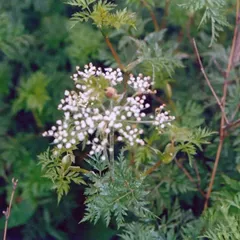
5. Szechuan Lovage Roots (Chuan Xiong)
Part used: Dried rhizome
Nature: Warm
Taste(s): Pungent
Meridian affinity: GallbladderLiverPericardium
Category: Herbs that invigorate the Blood
Chuan Xiong facilitates the flow of Blood through the vessels and alleviates symptoms such as headache, dizziness, blurred vision and pain
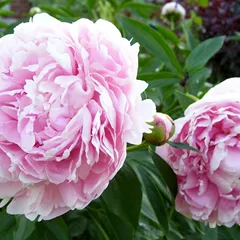
6. White Peony Roots (Bai Shao)
Part used: Dried root
Nature: Neutral
Meridian affinity: LiverSpleen
Category: Tonic herbs for Blood Deficiency
Bai Shao helps reduce the muscle spasms caused by Blood-Deficiency and it is particularly well-suited to treat abdominal pain. Together with Di Huang, it has a strong tonifying effect on the Blood.
Di Gu Pi Yin is used to treat Heat in the Blood
It's important to remember that herbal formulas are meant to treat patterns, not "diseases" as understood in Western Medicine. According to Chinese Medicine patterns, which are disruptions to the body as a system, are the underlying root cause for diseases and conditions.
As such Di Gu Pi Yin is mostly used to treat the pattern "Heat in the Blood" which we describe below.
But before we delve into Heat in the Blood here is an overview of the Western conditions it is commonly associated with:
Early menstruation Abnormal uterine bleeding
Again it wouldn't be correct to say "Di Gu Pi Yin treats early menstruation" for instance. Rather, Di Gu Pi Yin is used to treat Heat in the Blood, which is sometimes the root cause behind early menstruation.
Now let's look at Heat in the Blood, a pattern that TCM practitioners commonly treat with Di Gu Pi Yin.

Blood (Xue) is one of Chinese Medicine's vital subtances. Learn more about Blood in Chinese Medicine
Heat in the Blood
Pulse type(s): Rapid (Shu)
Tongue color: Red
Symptoms: Fever Thirst Eczema Anxiety Itching Insomnia Delirium Red face Tinnitus Dry mouth Dizziness Dark Urine Dry stools Dry throat Bloody nose Malar flush Bloody urine Irritability Restlessness Night sweats Constipation Bloody sputum Bloody stools Heavy periods Restlnessness Early periods Cough of blood Abdominal pain Scanty periods Feeling of heat Delirious speech Vomiting of blood Red skin eruptions Dark colored blood Pale color periods Thick menstrual blood Black and tarry stools Thin and watery periods Bitter taste in the mouth Frequent bleeding episodes Trickling blood after period Dark clots in menstrual blood Pre-menstrual breast distention Abdominal distention and fullness Flooding suddenly before schedule Thirst with an inability to swallow Frequent bleeding episodes in stools urine or vomit
Di Gu Pi Yin is sometimes prescribed by TCM practitioners to treat Heat in the Blood. This pattern leads to symptoms such as feeling of heat, red skin eruptions, thirst and frequent bleeding episodes. Patients with Heat in the Blood typically exhibit rapid (Shu) pulses as well as Red tongue.
The most common cause of Heat in the Blood is a Heat Pernicious Influence that has invaded the body and agitates the Blood. This results in accelerated blood flow which manifests itself in a rapid pulse, expanded and damaged Blood vessels and often heavy bleeding. The Blood will be fresh red or... read more about Heat in the Blood
Formulas similar to Di Gu Pi Yin
Si Wu Tang is 50% similar to Di Gu Pi Yin
Qing Wei San is 50% similar to Di Gu Pi Yin
Tao Hong Si Wu Tang is 50% similar to Di Gu Pi Yin
Qing Re Tiao Xue Tang is 50% similar to Di Gu Pi Yin
Sheng Yu Tang is 50% similar to Di Gu Pi Yin
Liang Di Tang is 50% similar to Di Gu Pi Yin

